Debate in parliament on candidates for new ministers
The Serbian parliament is on Friday debating the candidates proposed to take office as new ministers in the country's reshuffled government.
Friday, 30.08.2013.
11:24

BELGRADE The Serbian parliament is on Friday debating the candidates proposed to take office as new ministers in the country's reshuffled government. MPs are expected to vote to elect the new cabinet on Saturday. Debate in parliament on candidates for new ministers On Thursday, they adopted changes to the Law on Ministries, paving the way for the reconstruction of the Serbian government to be finalized. PM Ivica Dacic first addressed parliament with an expose on Friday afternoon, after which the debate started. Previously, resignations of nine ministers were acknowledged. They are Zarko Obradovic (education), Aleksandar Vucic (as defense minister), Milutin Mrkonjic (transport), Mladjan Dinkic (economy and finance), Verica Kalanovic (regional development), Suzana Grubjesic (deputy PM in charge of EU integration), Bratislav Petkovic (culture), Goran Knezevic (Agriculture), and Alisa Maric (sport). Dacic and his Socialists (SPS) on Thursday announced their candidates for new ministers in the reshuffled cabinet, thus completing the list. Dacic presents his expose (Tanjug) "We aim to change Serbia" Ivica Dacic stated on Friday that the aim of the government reshuffle is to change Serbia and help it develop faster. “Serbia needs everything now and it needs it immediately,” Dacic said in his expose to mark the appointment of new government members. According to him, the country and the nation deserve a more modern, efficient, just, better regulated, widely respected, more secure and rich Serbia. The new vision of Serbia is based on four basic preconditions, including a universal minimum of social protection, public finance consolidation, economy corporatisation and a sensible legal system. Recalling the expose he presented to the Serbian parliament 13 months ago, Dacic said he promised then that the government headed by him would work on the future of the country and the nation, so as to construct an integral vision of Serbia's future and make progress toward the future. “Progress, however, is not a mere correction of mistakes made in the past, it is an incessant progress toward the future, and this is the reason why we decided, without pressures from the opposition, to launch the most extensive and most thorough government reshuffle in the parliamentary history of Serbia,” Dacic said. We have done so because we have no reason to be satisfied and because we must not forget that constant changes, corrections and improvements are the only path to the goal which the country and the nation deserve, he said. “This aim is a more modern, efficient, just, better regulated, widely respected, more secure and rich Serbia,” Dacic said. The main goal of the government reshuffle is embodied in the new tasks of the government which should change Serbia and speed up its development instead of having Serbia be a hostage of the inter-party conflicts and distribution of power. “This is why over a half of the 11 new government members are non-party figures,” Dacic said and added that he is aware that Serbia needs everything and that it needs it now. Recalling that Serbia underwent a historical crisis which called into question Serbia's national and state interests, in which the country faced the disintegration of the former joint country, wars, forceful secession of a part of its territory, dual standards of the international community, economic impoverishment and loss of any perspective, Dacic said that the government managed to make the biggest steps ahead that were possible in such circumstances. “We started negotiating with Pristina and opened a new chapter for Serbs in Kosovo-Metohija, and this chapter will make it possible for them to earn international recognition and acceptance as a political subject whose voice would be respected,” Dacic said and added that at the same time, this chapter would protect Serbs in Kosovo-Metohija and ensure a normal life for them, without the fear of domination and forceful separation from Serbia. In addition to the fact that the country was granted the starting date for EU accession talks, the manner in which the government achieved that is also important, the prime minister said, underscoring that “the success of this government lies in this very manner, contrary to all governments that may have wanted that or not, but it “has certainly done much more to make it happen than any other government.” “More importantly, this government has not lied to anyone in Serbia or abroad. We had an objective, and did not hide anything. We did everything we said we would do. In the end, besides the date, we got something else, we have been recognized as reliable partners,” the prime minister said. Now, a more difficult and important part lies ahead of every citizen and the government, because Europe is at our doors, but not yet in Serbia, he added. “Europe will be here to an extent to which we will be capable of being Europe. This is the next priority of this government,” the prime minister said. Dacic noted that the difficult economic situation is the greatest problem, stressing that the economic recovery is a national priority. “The country's erosion in economic terms must be stopped,” Dacic said, mentioning some parameters that illustrate the situation in that regard, and plans for the coming period. Underlining some positive developments, such as a rise in exports, inflation that was put under control, the arrangement between the national air carrier Jat and Etihad, the prime minister said that Serbian public finances and economic system are in a very tough and alarming state, and that is the reason why it is necessary to introduce some changes to the way in which the economic policy is being carried out, which also required changes to the make-up of the government during the reshuffle. “The goal is to make courageous and measured moves to lead the Serbian economy out of the crisis and make state finances sustainable in the long run. Serbia must stabilize public finances and economic system, create sustainable and favorable business environment and stimulate the sustainable economic growth through an active development policy,” he said. Listing the four main preconditions for a new vision of Serbia, Dacic noted that in all that it is very important to establish an open dialogue with the economy, associations, trade unions, expert public, academic circles and representatives of the international institutions. Serbia's development strategy, he added, must be based on what Serbia has and what constitutes our comparative advantage - agriculture, food industry, energy sector and infrastructure, automotive industry and IT sector. “These are branches that should be expected to bring about a new investment cycle,” Dacic said, underscoring that the growth-or-cuts dilemma is a false one, as Serbia needs both. Besides the economy, Serbia needs to develop other areas in the society, and that is why the reshuffle encompassed many sectors and departments, he said, adding that the EU accession talks, as an attainment, are the reason to look at what we could do even better. B92 Tanjug
Debate in parliament on candidates for new ministers
On Thursday, they adopted changes to the Law on Ministries, paving the way for the reconstruction of the Serbian government to be finalized.PM Ivica Dačić first addressed parliament with an expose on Friday afternoon, after which the debate started.
Previously, resignations of nine ministers were acknowledged.
They are Žarko Obradović (education), Aleksandar Vučić (as defense minister), Milutin Mrkonjić (transport), Mlađan Dinkić (economy and finance), Verica Kalanović (regional development), Suzana Grubješić (deputy PM in charge of EU integration), Bratislav Petković (culture), Goran Knežević (Agriculture), and Alisa Marić (sport).
Dačić and his Socialists (SPS) on Thursday announced their candidates for new ministers in the reshuffled cabinet, thus completing the list.
"We aim to change Serbia"
Ivica Dačić stated on Friday that the aim of the government reshuffle is to change Serbia and help it develop faster.“Serbia needs everything now and it needs it immediately,” Dačić said in his expose to mark the appointment of new government members.
According to him, the country and the nation deserve a more modern, efficient, just, better regulated, widely respected, more secure and rich Serbia.
The new vision of Serbia is based on four basic preconditions, including a universal minimum of social protection, public finance consolidation, economy corporatisation and a sensible legal system.
Recalling the expose he presented to the Serbian parliament 13 months ago, Dačić said he promised then that the government headed by him would work on the future of the country and the nation, so as to construct an integral vision of Serbia's future and make progress toward the future.
“Progress, however, is not a mere correction of mistakes made in the past, it is an incessant progress toward the future, and this is the reason why we decided, without pressures from the opposition, to launch the most extensive and most thorough government reshuffle in the parliamentary history of Serbia,” Dačić said.
We have done so because we have no reason to be satisfied and because we must not forget that constant changes, corrections and improvements are the only path to the goal which the country and the nation deserve, he said.
“This aim is a more modern, efficient, just, better regulated, widely respected, more secure and rich Serbia,” Dačić said.
The main goal of the government reshuffle is embodied in the new tasks of the government which should change Serbia and speed up its development instead of having Serbia be a hostage of the inter-party conflicts and distribution of power.
“This is why over a half of the 11 new government members are non-party figures,” Dačić said and added that he is aware that Serbia needs everything and that it needs it now.
Recalling that Serbia underwent a historical crisis which called into question Serbia's national and state interests, in which the country faced the disintegration of the former joint country, wars, forceful secession of a part of its territory, dual standards of the international community, economic impoverishment and loss of any perspective, Dačić said that the government managed to make the biggest steps ahead that were possible in such circumstances.
“We started negotiating with Priština and opened a new chapter for Serbs in Kosovo-Metohija, and this chapter will make it possible for them to earn international recognition and acceptance as a political subject whose voice would be respected,” Dačić said and added that at the same time, this chapter would protect Serbs in Kosovo-Metohija and ensure a normal life for them, without the fear of domination and forceful separation from Serbia.
In addition to the fact that the country was granted the starting date for EU accession talks, the manner in which the government achieved that is also important, the prime minister said, underscoring that “the success of this government lies in this very manner, contrary to all governments that may have wanted that or not, but it “has certainly done much more to make it happen than any other government.”
“More importantly, this government has not lied to anyone in Serbia or abroad. We had an objective, and did not hide anything. We did everything we said we would do. In the end, besides the date, we got something else, we have been recognized as reliable partners,” the prime minister said.
Now, a more difficult and important part lies ahead of every citizen and the government, because Europe is at our doors, but not yet in Serbia, he added.
“Europe will be here to an extent to which we will be capable of being Europe. This is the next priority of this government,” the prime minister said.
Dačić noted that the difficult economic situation is the greatest problem, stressing that the economic recovery is a national priority.
“The country's erosion in economic terms must be stopped,” Dačić said, mentioning some parameters that illustrate the situation in that regard, and plans for the coming period.
Underlining some positive developments, such as a rise in exports, inflation that was put under control, the arrangement between the national air carrier Jat and Etihad, the prime minister said that Serbian public finances and economic system are in a very tough and alarming state, and that is the reason why it is necessary to introduce some changes to the way in which the economic policy is being carried out, which also required changes to the make-up of the government during the reshuffle.
“The goal is to make courageous and measured moves to lead the Serbian economy out of the crisis and make state finances sustainable in the long run. Serbia must stabilize public finances and economic system, create sustainable and favorable business environment and stimulate the sustainable economic growth through an active development policy,” he said.
Listing the four main preconditions for a new vision of Serbia, Dačić noted that in all that it is very important to establish an open dialogue with the economy, associations, trade unions, expert public, academic circles and representatives of the international institutions.
Serbia's development strategy, he added, must be based on what Serbia has and what constitutes our comparative advantage - agriculture, food industry, energy sector and infrastructure, automotive industry and IT sector.
“These are branches that should be expected to bring about a new investment cycle,” Dačić said, underscoring that the growth-or-cuts dilemma is a false one, as Serbia needs both.
Besides the economy, Serbia needs to develop other areas in the society, and that is why the reshuffle encompassed many sectors and departments, he said, adding that the EU accession talks, as an attainment, are the reason to look at what we could do even better.










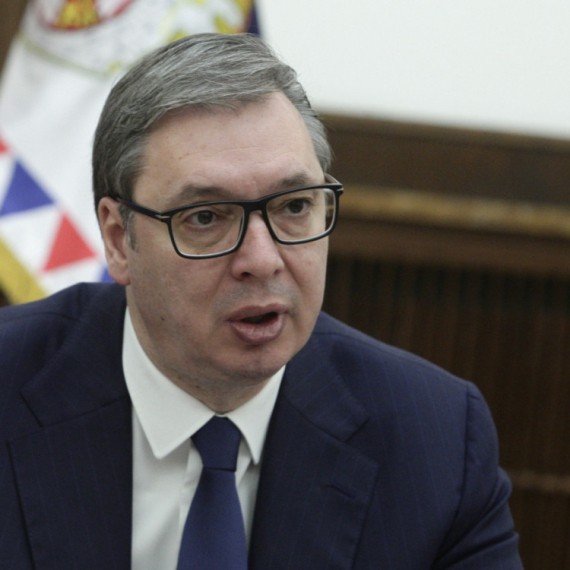




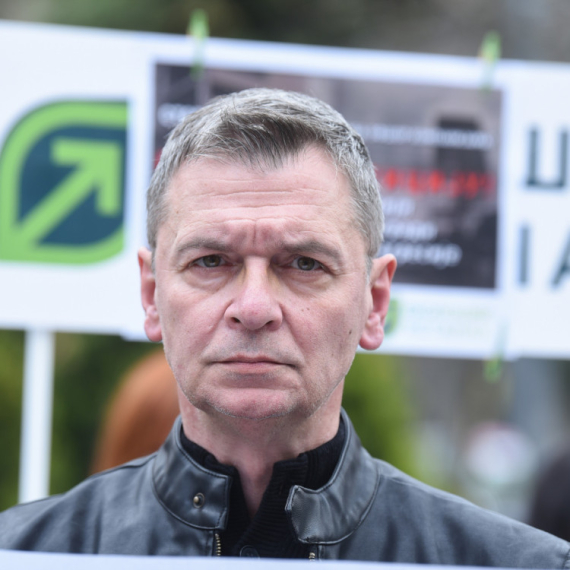
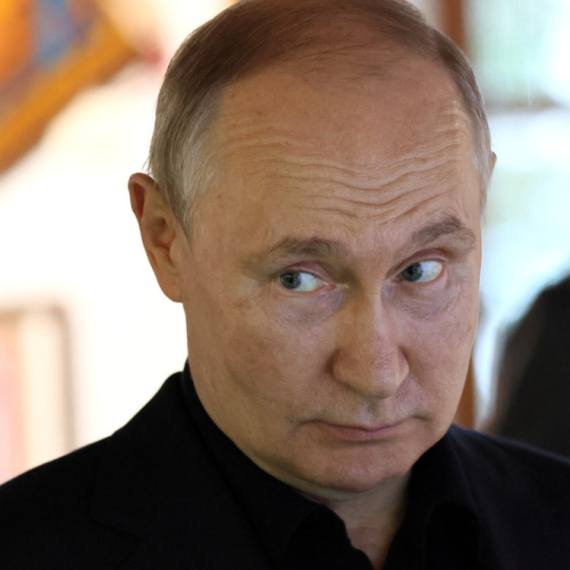




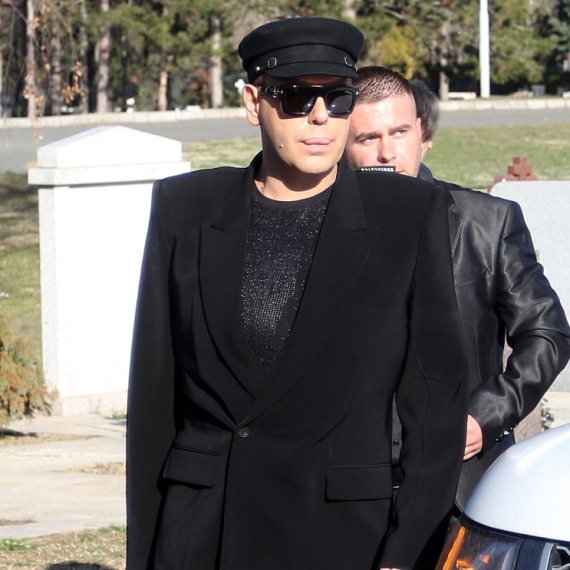


































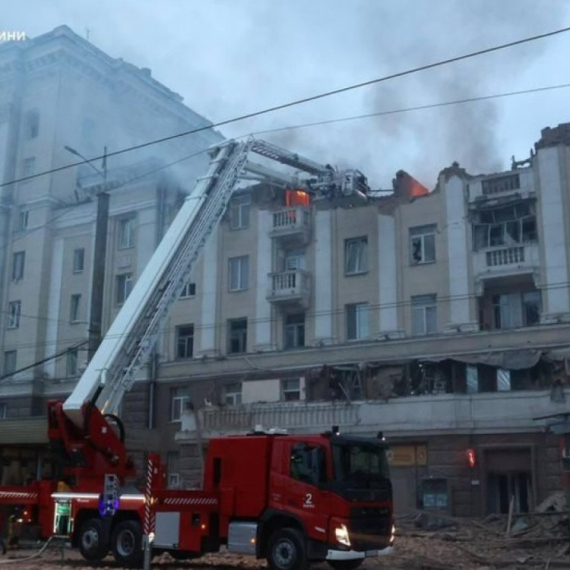

Komentari 3
Pogledaj komentare